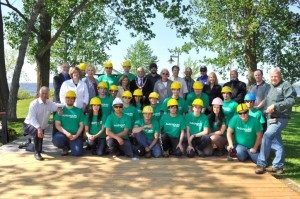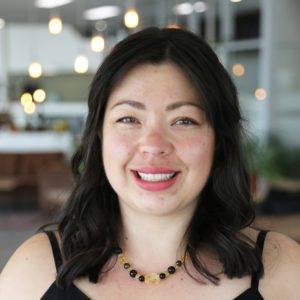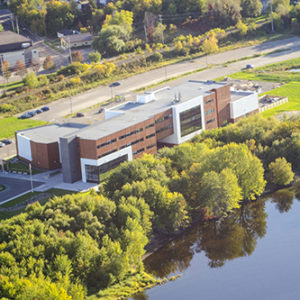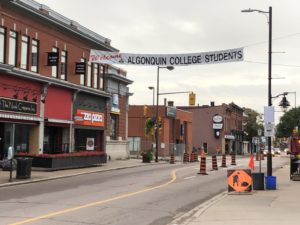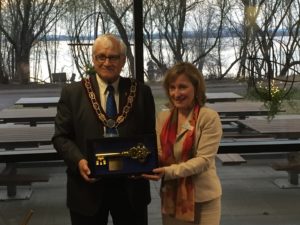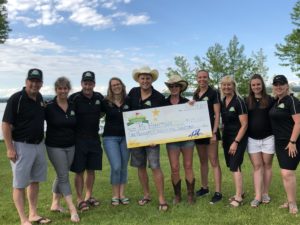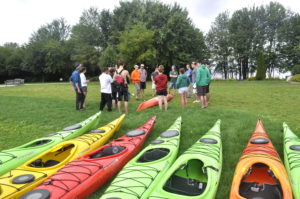
In the summer of 1999, Kent MacDonald jumped into a raft at Wilderness Tours resort. It was his first time rafting the Ottawa River and an opportunity to learn more about what a potential student experience would be like if his academic department pursued an Outdoor education program. MacDonald was the Chair of the Business and Technology department at Algonquin College’s Pembroke Campus and knew that the campus was exploring new opportunities to grow its enrolments. One of the ideas on the table was an outdoor education program that would support the growing adventure tourism sector.
MacDonald was a visionary, a big thinker and an entrepreneur, personality traits that would propel him to the presidency of three institutions during his career, Algonquin College, St. Francis Xavier University and now Northwood University in Michigan. On that hot, sunny day on the Ottawa River, MacDonald was envisioning what the program could look like and how a partnership with the private sector would be needed to make it financially viable.

With a senior guide steering the raft through the rapids, the flat water sections of the river provided ample opportunity for MacDonald to ask questions. He wanted to know about the needs of the industry, the growth in rafting trips and the infrastructure that was available at Wilderness Tours for student learning? By the time the trip was over, he was sitting across the table from the owner of Wilderness Tours, Joe Kowalski, and discussions were underway on how the College and adventure company could jointly build a program that would produce graduates with both practical skills and business acumen that would advance the adventure tourism sector.
“I had no reservations. We developed the program together with the professional team at Wilderness Tours. Each of us knew what each institution was able to bring to the table. We were both committed to quality and safety, and Wilderness Tours could do a better job than we could, in terms of providing industry expertise, risk management, outstanding facilities and equipment and of course, excellent contacts within the industry for our students to obtain employment. It was a perfect scenario and an opportunity that was obvious in my view,” says MacDonald.
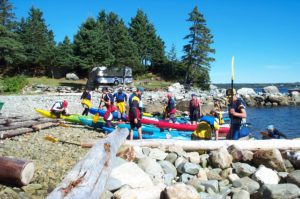 Like MacDonald, Kowalski saw the potential in a partnership with the College. “This was exactly what the industry needed. It helped bring credibility to the adventure tourism sector and we were very proud to be pioneers with Algonquin College in developing the most successful Outdoor Adventure program on the planet,” says Kowalski who himself is into his fifth decade of owning an adventure tourism business.
Like MacDonald, Kowalski saw the potential in a partnership with the College. “This was exactly what the industry needed. It helped bring credibility to the adventure tourism sector and we were very proud to be pioneers with Algonquin College in developing the most successful Outdoor Adventure program on the planet,” says Kowalski who himself is into his fifth decade of owning an adventure tourism business.
Over the next few weeks, MacDonald and Kowalski would meet often, bringing their teams together to hammer out the details of what the program would entail. By the time the fall of 1999 rolled around, the pieces were in place. Students would spend two days a week at Wilderness Tours and Mount Pakenham, which Kowalski jointly owned, and three days a week on campus learning business fundamentals that would apply to adventure tourism.
Courses like risk management, accounting, finance, marketing and communication skills would be taught, but the big attraction to students would be the opportunity to earn more than 20 industry-recognized certifications while learning practical skills like whitewater rafting and kayaking, mountain biking, rock and ice climbing and scuba diving. It was truly the most exhilarating college program on earth and not surprisingly it was an overwhelming success when it launched in the fall of 2000.
With only 40 spaces available in its first intake, the program attracted almost 250 applications. Through a competitive process applicants needed to meet academic requirements for English and Math, needed to submit letters of intent and reference letters to describe the attributes they would bring to the program, and participate in a program readiness camp. Two decades later, those same requirements continue to be part of the admissions process and the program continues to attract students from across the country, and in some cases international destinations.
 Among the students who enrolled that first year was Ben Shillington who had no intention of continuing on to post-secondary education. ” Upon graduation from high school, my plan was to bicycle solo and self-supported across Canada. After arriving on the West Coast, I planned to find a place to train in both whitewater rafting and mountaineering. Shortly before graduating high school, my guidance counsellor gave me a sheet of paper highlighting a new program still pending approval called “Outdoor Adventure Guide Diploma” With a list of training and certification in everything from mountain biking to scuba diving and ice climbing along with some in-class education I couldn’t think of a better bang for buck opportunity.”
Among the students who enrolled that first year was Ben Shillington who had no intention of continuing on to post-secondary education. ” Upon graduation from high school, my plan was to bicycle solo and self-supported across Canada. After arriving on the West Coast, I planned to find a place to train in both whitewater rafting and mountaineering. Shortly before graduating high school, my guidance counsellor gave me a sheet of paper highlighting a new program still pending approval called “Outdoor Adventure Guide Diploma” With a list of training and certification in everything from mountain biking to scuba diving and ice climbing along with some in-class education I couldn’t think of a better bang for buck opportunity.”
Twenty years later, Shillington is perhaps the most adventurous graduate the program has ever produced. His adventures started right after he completed the program. Shillington followed through on his plan to bike solo across the country. He then became a whitewater raft guide that summer while also climbing and filming a two-month mountaineering expedition in the Himalayas as part of an adventure documentary series for the Discovery Channel.
There’s not much Shillington hasn’t done in the adventure world. His long list of adventures includes working, travelling and training in 28 countries, three summits of Mount Kilimanjaro, a three-week ski expedition on one of the coldest places on earth in the winter – Lake Winnipeg, an 11,000-kilometre bike expedition from Istanbul, Turkey to Beijing, China and the list goes on. Shillington has also written a book on winter camping and he continues to be a lead practical skills trainer for the program that changed his point of view on post-secondary education.
When he speaks about the program and what it meant to his development as an adventure guide, Shillington simply says. “What you put into it, is what you will get out of it.”
The idea for an outdoor education program was first brought forward by Dawn Dubé, who was the Manager of Community and Student Affairs at the Pembroke Campus during the 1990’s. She had watched her son and his friends embrace adventure activities and felt strongly that there was room in the marketplace for a college program that would teach these skills for the emerging adventure tourism industry. She brought the suggestion to the attention of Campus Dean, Marguerite Donohue, who also thought it was a good idea. When MacDonald joined the campus management group in 1998 he was given the task of bringing the idea to fruition.
When the Outdoor Adventure program started, the Pembroke Campus of Algonquin College had about 500 full-time students. Its impact on the campus can not be understated. The program’s ability to attract out-of-town students opened a door for the campus to launch other outdoor training programs, resulting in significant enrolment growth that helped contribute to the 2012 opening of a new Waterfront Campus along the shores of the Ottawa River and adjacent to Pembroke’s downtown.
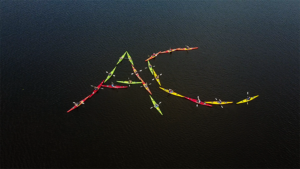
Twenty years after the Outdoor Adventure program helped the Pembroke Campus become a destination for college-bound students who wanted to experience a program like no other in the province at the time, the program has become a flagship program for the campus. It has produced graduates that work all around the world, many of whom have started their own adventure businesses, a primary goal of MacDonald’s when he signed off on the program launch two decades ago.
“We always wanted to have Algonquin Outdoor Adventure graduates who were professional and highly prepared to make a difference in the industry. We underestimated them-they have actually changed it for the better! says MacDonald, who glows when speaking about how graduates now work all around the world.
He also offers this advice to future students. “Take advantage of being one of those special people who have been selected to participate in the best outdoor college program in North America. Increase your knowledge, enhance your skill-base and then take those outcomes to make a difference in the multi-billion dollar industry in Canada.”
That’s exactly the approach Cameron Dubé had in mind when as a 21-year old young man he enrolled in the program in its second year. Dubé had grown up in the Ottawa Valley and is among a small group of local students who have enrolled in the program over the years. Most of the students who move to Pembroke to take the program come from Ontario and Quebec, given Pembroke’s close proximity to the provincial border, but the program always has students from coast to coast and beyond Canada’s footprint.
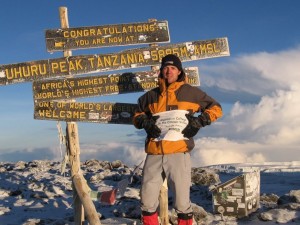
“I knew that at this point in my life it was time to take my life experiences as a ski instructor at Whistler/Blackcomb and Kicking Horse Resort and as a raft guide at Wilderness Tours to the next level by adding a diploma to my resume, and it worked!.” After graduating, Dubé quickly found management level positions within the adventure tourism sector and eventually returned to school to earn a Bachelor’s Degree in Tourism Management through an articulation agreement that was established with Thomson Rivers University in British Columbia. Now, in between expeditions that have taken him to many parts of the world, Dubé teaches technical skills in the program, returning full circle to the College that gave him his Outdoor Adventure diploma.
On that initial rafting trip, the guide pointed out to MacDonald an osprey, a large fish-eating bird that had built a nest high in a tree looking over the Ottawa River. It was a reminder for MacDonald of how nature could be so engaging and why millions of people around the world seek out opportunities to explore Canada’s natural beauty, including its animal habitat. Perhaps, it planted a seed for what would become a spin-off program to Outdoor Adventure two years later, Outdoor Adventure Naturalist, a business tourism program that focuses on nature interpretation and soft adventure skills like flatwater canoeing and kayaking, astronomy and cross-country skiing.
At the core of the program’s success has been its faculty. Experienced adventure tourism practitioners like long-time coordinator Jeff Jackson, Chris Melmoth and Ian Pineau brought years of industry experience into the classroom, and worked with practical skills subject matter experts at Wilderness Tours to build a solid foundation of expertise that has set a high expectation for students who enroll in the program.
Outdoor Adventure has proven to be a college program like no other, a program that has now turned out hundreds of graduates. These alumni have climbed Mount Everest and Kilimanjaro, have led expeditions on all corners of the planet, have improved safety through their attention to risk management and have created jobs through their entrepreneurial ambition to create their own adventure companies. It’s exactly what MacDonald had envisioned and it’s worth making a splash about as Algonquin’s Outdoor Adventure program celebrates its twentieth anniversary.
Posted by: Jamie Bramburger, Manager, Community and Student Affairs
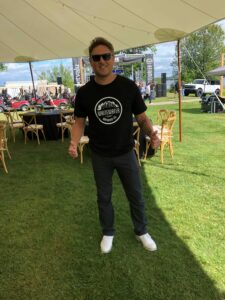
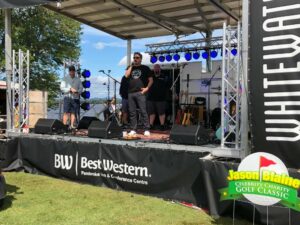



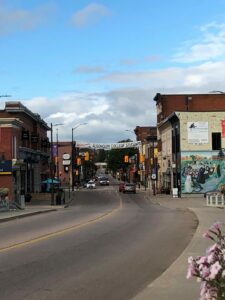
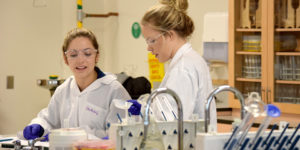
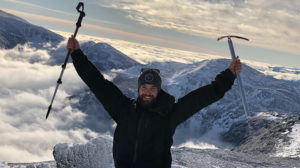

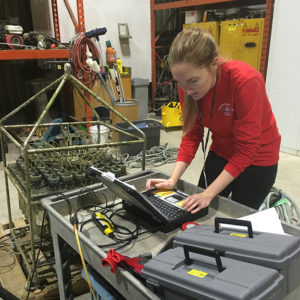



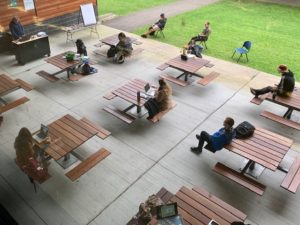
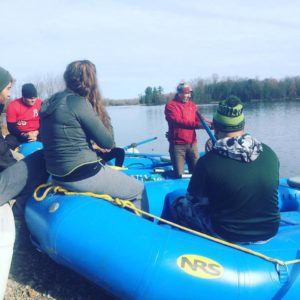

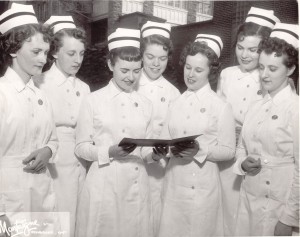
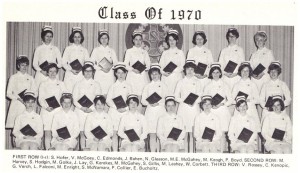
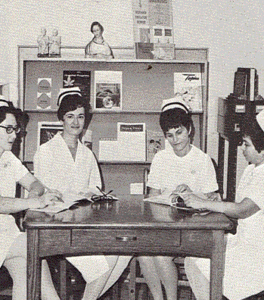


 Like MacDonald, Kowalski saw the potential in a partnership with the College. “This was exactly what the industry needed. It helped bring credibility to the adventure tourism sector and we were very proud to be pioneers with Algonquin College in developing the most successful
Like MacDonald, Kowalski saw the potential in a partnership with the College. “This was exactly what the industry needed. It helped bring credibility to the adventure tourism sector and we were very proud to be pioneers with Algonquin College in developing the most successful 



